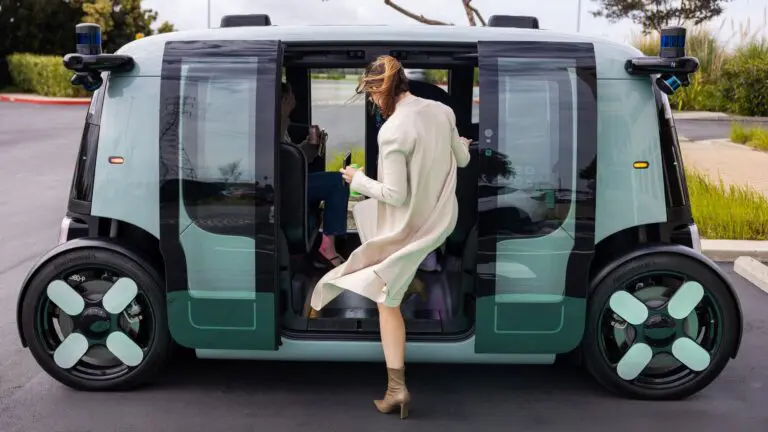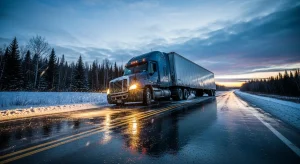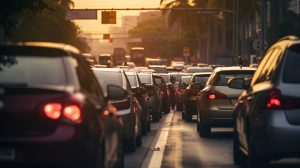The United States has approved, for the first time, the public operation of autonomous vehicles fully designed and manufactured domestically. Zoox, an Amazon-owned company, became the first to benefit from a safety exemption that will allow real-world testing of its innovative, steering wheel– and pedal–free model, marking a milestone for the industry.
In a landmark decision for the future of mobility in the U.S., the National Highway Traffic Safety Administration (NHTSA) announced it has granted a safety exemption to Zoox, allowing the company to begin public road testing of its fully autonomous vehicle fleet. This is the first time such an exemption has been awarded to an American-built vehicle under the newly expanded Automated Vehicle Exemption Program.
The move was made possible through the Innovation Agenda led by U.S. Secretary of Transportation Sean P. Duffy, who has prioritized the advancement of next-generation technologies to modernize transportation infrastructure, strengthen domestic competitiveness, and position the U.S. as a global leader in smart mobility.
What does the exemption allow?
NHTSA has the authority to grant temporary exemptions to vehicle manufacturers wishing to test innovative technologies that don’t fully comply with current Federal Motor Vehicle Safety Standards (FMVSS). In this case, the exemption allows Zoox to test a completely autonomous vehicle—one that has no steering wheel, no pedals, and no traditional driver’s seat—on public roads.
Unlike many autonomous prototypes built on modified conventional cars, Zoox’s vehicle was purpose-built from the ground up to operate without a human driver. It is fully electric, bidirectional, and symmetrical, optimized for tight urban environments and shared mobility use cases.
Why is this decision significant?
Until now, NHTSA exemptions had primarily been granted to foreign automakers or U.S. companies adapting traditional vehicles with self-driving systems. This approval for Zoox signals a shift in policy direction, favoring domestically developed and manufactured autonomous technology.
The decision also carries geopolitical and economic weight. As global competition in artificial intelligence, electrification, and automation intensifies—especially from China and Europe—the U.S. government is working to reclaim technological leadership and reduce reliance on foreign platforms.
“The future of transportation should be built in America, with American technology, American jobs, and benefits for American communities,” said a spokesperson from the U.S. Department of Transportation. “This exemption represents a bold step toward a safer, more competitive, and more innovative national industry.”

A new regulatory approach to innovation
This exemption is part of a broader effort to redefine the government’s role in fostering innovation, without compromising its responsibility to protect public safety. The revamped Automated Vehicle Exemption Program provides a clear regulatory pathway for companies working on disruptive mobility solutions.
To qualify, companies must meet strict criteria, including:
Demonstrating safety performance equivalent to or greater than conventional vehicles
Submitting robust risk management plans
Disclosing testing protocols and emergency procedures
Sharing performance data with regulators
The goal is to ensure that testing in real-world environments does not endanger passengers, pedestrians, or other road users, while still enabling innovation to flourish.
What’s next for Zoox?
With the exemption granted, Zoox will begin operating its vehicles in authorized public areas, starting with select cities in California and Nevada, where it has already conducted extensive closed-course testing.
The company emphasized that the focus is on demonstration and data collection, not immediate commercialization. The results of these trials will inform future expansion, regulatory refinement, and potentially, nationwide deployment.
A road to the future, made in the U.S.A.
NHTSA’s decision marks a turning point in the history of American transportation. It not only opens the door for fully autonomous vehicles designed and built in the U.S. but also signals a strategic embrace of innovation as industrial policy.
In a time of rapid technological disruption, federal support for companies like Zoox shows that America intends not just to participate in the future of mobility—but to lead it, on its own terms. This exemption is only the beginning of that journey.

Frozen Roads After Bomb Cyclone: Black Ice, Record Snow and High Risk for Trucks
Frozen roads continue to disrupt freight transportation following the impact of a powerful bomb cyclone, leaving behind black ice, highway shutdowns, power outages, and dangerous winter driving conditions stretching from the Gulf Coast to New England.

Lunar New Year 2026: Ancient Traditions, Renewed Energy, and Massive Celebrations
Lunar New Year 2026 begins on February 17 under the sign of the Fire Horse and is marked by spiritual rituals, family reunions, and large-scale celebrations in both China and the United States, especially in California.

Freedom 250 Grand Prix: How Logistics and Transportation Will Power the Race in Washington
The first-ever IndyCar street race in Washington, D.C., scheduled for August 21–23, will headline the United States’ 250th anniversary celebrations — and it will trigger a massive transportation, freight, and urban logistics operation behind the scenes.

Groundhog Day: What It Means for Trucking When “Phil Sees His Shadow”
The forecast from America’s most famous groundhog is calling for more winter — and that’s an important signal for the trucking industry and cold-season route planning

Love on the open road: the best dating apps for truckers
If you’re looking for someone to go the long haul with, here are the best dating apps for truck drivers. They say love is everywhere…

The most congested cities in the U.S. and the world in 2025
The annual TomTom Traffic Index produces a ranking of the most congested cities in the world. The annual TomTom Traffic Index presents an analysis of
